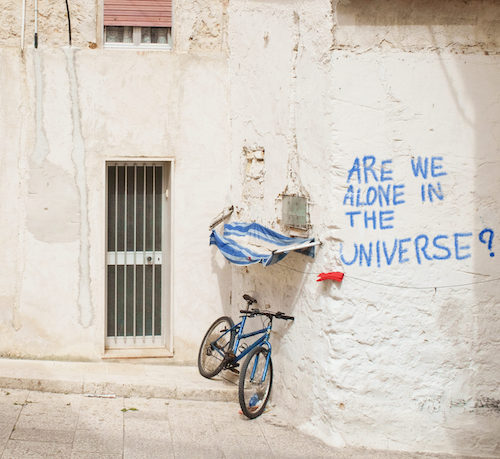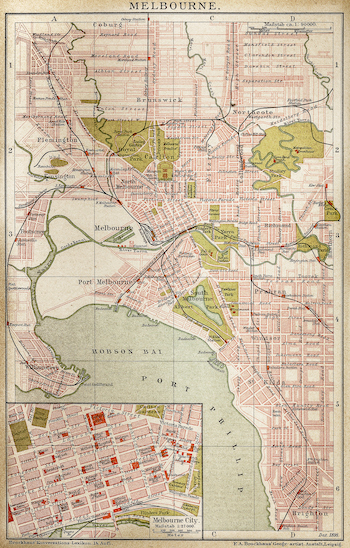Journal
Articles

See through a glass darkly
On the way home that night we pass Oxford Street. It’s lit up and people are dancing in the windows of the clubs. There’s a rainbow flag on one of the buildings. Dad turns to look at this with a grimace: he shakes his head and sucks his teeth. He turns the volume up on the CD player and focuses on the road ahead.

On the forging of identity
The night Sartre spoke in Paris can be seen as a hinge in time, the moment when modernity and its focus on individual identity came to the fore after the destruction of the old order. We are still living on the far side of the door Sartre pointed us through. Of course, modernity had a thousand authors. It was the product of billions of lives lived in close proximity. But Sartre, to me, best articulated a modern creed of what it means to be human.

The dancing ground
After some initial research, and only finding one historical reference to a ceremonial ground within the CBD, I confined the puzzle of Russell’s lacuna to the back of my mind. The single reference I found was in Bill Gammage’s book The Biggest Estate on Earth, where he writes: ‘A dance ground lay in or near dense forest east of Swanston Street and south of Bourke Street.’ Not a great lead because it was two blocks away from where it was depicted on Robert Russell’s survey.

To sing, to say
How poetry works – its oracular way, its indirection – is how land works, he saw. Land as a teacher, as an embodiment not only of its own intergrity but of human aspirations and virtues like hope and beauty; land as an educator of the senses; land as a measure against which to prove and compare one’s own and others’ lives, as a theatre for the divine comedy of all human life; land as an elder, as a god, as a library...

The transhuman era
The story of the transhuman era has much in common with the creation myths of old – and with religious tales of transcendence. It heralds the emergence of a powerful – omniscient, omnipresent – force (AI) possessing intelligence that far exceeds our own. And lends itself to stories that play off destruction against what you could term ‘salvation’, in the form of digital immortality.

Pop mythology
Even though I grew up on a small, remote island, I was still heavily influenced by television – particularly the sort of cartoons that would play on Saturday mornings, mornings before school, after school and so on. When it comes to DC and Marvel and all of those superheroes, for me that was ignited by my late grandfather Ali Drummond, my mother’s father, who had boxes of Phantom comics. Phantom was my early introduction to the strong, powerful male being who had supernatural strength and abilities.

The age of discovery
Prior to Homo sapiens, populations might have just moved on or gone extinct in the face of environmental risks, whereas with Homo sapiens we were able to disperse widely across the world despite great ecological challenges. The underlying reason for that may be rooted in our social relations, our high level of co-operation – we don’t necessarily see that with earlier human species.

Colour theory
I’d graduated to skimming transcripts on the Supreme Court website when Susy found the eyeball. There was a feral screech and a minute later she was standing in the doorway to my bedroom. What is that thing in the fridge? When I played dumb, she said in the blue Tupperware. What the actual fuck?

Back to the red earth
Before she opens her eyes, she knows with the very same certainty that she is of this land that Juanjo, her lover and the father of her five guris, isn’t going to be asleep by her side. But she could for once be wrong. So, she stretches out her arm and feels around. Instead, her fingertips touch his perfectly tucked-in bedsheet. His side of the bed is vacant like the rows of this year’s failed crop.

Have you ever seen the rain?
One by one the streets quietened down. A great hush washed over this city. Even the lights at night seemed dimmer. All of life lay dormant. Or maybe not – Toru couldn’t trust his eyes, could he? He had been living on the streets in the clothes he died in, scrounging food from tables outside restaurants and cafés around the city, but those tables were long gone.
Autumn
Tsunami-hit, shoved over at a tilt, they’ve left the bashed old kovil’s god-thronged tower standing, tallish, beyond the new one built to face, this time, becalm, the ocean’s power…
New Scientist
A body we can read and understand. If only I could put you under a microscope and transform you into a symbol to unite our disciplines: the communication phage.